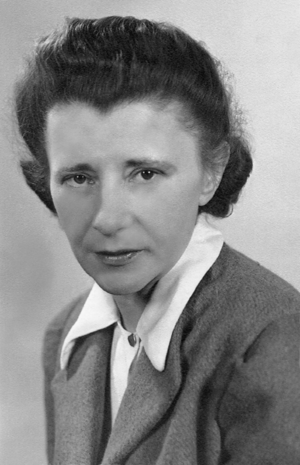“WHEN THE GERMANS OCCUPIED WARSAW, NORMAL LIFE ENDED. EVERY DAY, MY MOTHER WAITED IN FEAR FOR MY FATHER TO RETURN FROM WORK. SHE WOULD HOLD ME, A LITTLE GIRL, AND SAY: HE’LL DEFINATELY RETURN, WE WON’T BE LEFT ON OUR OWN.”
During the Warsaw Uprising, the Germans seized more and more neighbourhoods, the civilian population was driven out without their property, their houses were demolished. The inhabitants of Warsaw (including my mother, my father and me) were placed in the “Dulag 121” transit camp. We were there for several days, during which the Germans picked people for transports. After a few days of travelling, the men from our transport arrived at Neuengamme concentration camp. My father lost his life there on 8 December 1944. The women and children were taken to Ravensbrück and placed in a large tent. The stay there was terrible, and everyone was terrified of being separated. Subsequently, we were sent with a large group of women and children to work on a farm and then in a brick factory and a sugar refinery where the mothers worked hard and were beaten.
In the final period of the war in 1945, at the time of the death march, my mother showed great courage and strength, and somewhere she got hold of a pram and carried me in it because I could not walk. At the end of April 1945, the US Army liberated us. After the war, we stayed in Germany in centres built by the Americans to take care of war victims. We returned to Poland in July 1946 after receiving the official report of my father’s death.
I remember my mother as being an extraordinarily brave, courageous, mentally strong, but also a very sad woman. We survived being in Ravensbrück concentration camp, the wandering and the death march only thanks to the strong will of my mother, who did not despair but believed in freedom and divine protection.
All her experiences from the war were tragic for my mother – she lost her husband and her property and had to look after her daughter on her own. The return to Poland was bitter. Warsaw in ruins. We had to start life again, we had nothing. Distant relatives and my father’s friends helped us. My mother worked and faced huge problems. Yet she created the conditions for me to study and start a family. She did not want to return to the time of the war in her memories.
Barbara Piotrowska
Poland
Marta Stachowicz’s daughter
